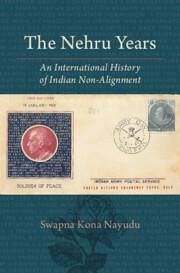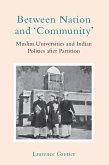Scholars of international relations, political thought, and India's international and diplomatic history are increasingly interested in the relevance of non-alignment in Indian foreign policy. The origins of such policies and debates can be traced back to Nehru's conceptualization of non-alignment at the height of the Cold War. In this deeply researched study of his years as Prime Minister, 1947-64, Swapna Kona Nayudu utilizes archival research in multiple languages to uncover Indian diplomatic influence in four major international events: the Korean War, the Suez Crisis, the Hungarian Revolution, and the Congo Crisis. Through this detailed examination, she explores the contested meaning of non-alignment, a policy almost unique in its ambiguity and its centrality to a nation's political life. The resulting history is a thoughtful critique of India's diplomatic position as the only non-aligned founding member of the UN.
Bitte wählen Sie Ihr Anliegen aus.
Rechnungen
Retourenschein anfordern
Bestellstatus
Storno








